The Invalidity Of NOMA
Unknown Author [2019-06-30]
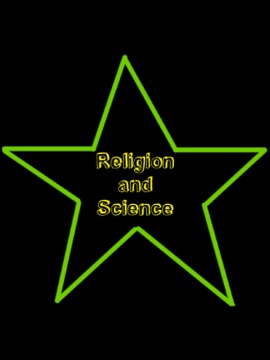 NOMA (non-overlapping magisteria) is a view, advanced by the late Stephen Jay Gould, that science and religion each represent different areas of inquiry, fact vs. values, over which they have "a legitimate domain of authority," and that the two do not overlap (Wikipedia). In many ways NOMA can be seen to be an attempt to stop the warring between religious and science-oriented factions and this article argues that NOMA is effectively invalid.
NOMA (non-overlapping magisteria) is a view, advanced by the late Stephen Jay Gould, that science and religion each represent different areas of inquiry, fact vs. values, over which they have "a legitimate domain of authority," and that the two do not overlap (Wikipedia). In many ways NOMA can be seen to be an attempt to stop the warring between religious and science-oriented factions and this article argues that NOMA is effectively invalid.
The Age of the Earth
James C. Rocks [2016-12-01]
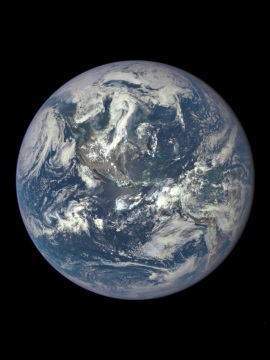 It is impossible to date, with absolute accuracy, the age of the Earth but in that it is no different from any other science-based theory. Homo sapiens has only been resident for some 50,000 years so we were, unfortunately, unable to witness the birth of our planet.
It is impossible to date, with absolute accuracy, the age of the Earth but in that it is no different from any other science-based theory. Homo sapiens has only been resident for some 50,000 years so we were, unfortunately, unable to witness the birth of our planet.
Transitional Species
James C. Rocks [2016-11-15]
 Young Earth creationists, as always attempting to disprove any theory that disputes their belief that life on Earth has evolved rather than be divinely created, dispute evolution on the basis that there should be evidence of transitional species. A transitional fossil is one that lies, in evolutionary terms, between two species and exhibits some features of one, some of the other and possibly some features that are at a stage of development some way between the two.
Young Earth creationists, as always attempting to disprove any theory that disputes their belief that life on Earth has evolved rather than be divinely created, dispute evolution on the basis that there should be evidence of transitional species. A transitional fossil is one that lies, in evolutionary terms, between two species and exhibits some features of one, some of the other and possibly some features that are at a stage of development some way between the two.
Is Evolution Science?
James C. Rocks [2016-11-01]
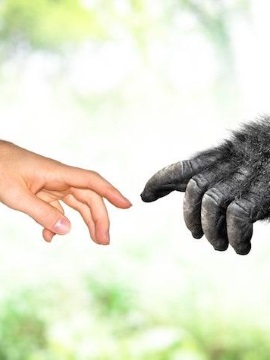 Disingenuous as ever, young earth creationists claim that both evolution and creationism are religions and seem to end up confused as to how they would prefer their own personal worldview to be regarded. One moment they claim it is science in order to rank it on a level equal to that of evolution and the next they are denying it is a science and insisting evolution is a religion! Evolutionists, on the other hand, consistently regard creationism as religion and evolution as science.
Disingenuous as ever, young earth creationists claim that both evolution and creationism are religions and seem to end up confused as to how they would prefer their own personal worldview to be regarded. One moment they claim it is science in order to rank it on a level equal to that of evolution and the next they are denying it is a science and insisting evolution is a religion! Evolutionists, on the other hand, consistently regard creationism as religion and evolution as science.
Genesis and The Big Bang
James C. Rocks [2016-10-15]
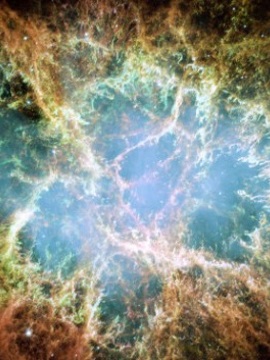 Fundamentalists will often use the argument attempt to claim that the bible and science are compatible in that Genesis can be interpreted as predictive of modern-day scientific knowledge. The implications of such a claim, were it to be demonstrated as true would be immense ... whilst it would not automatically demonstrate the bible as being correct from cover to cover it would certainly lend it a great deal of credence.
Fundamentalists will often use the argument attempt to claim that the bible and science are compatible in that Genesis can be interpreted as predictive of modern-day scientific knowledge. The implications of such a claim, were it to be demonstrated as true would be immense ... whilst it would not automatically demonstrate the bible as being correct from cover to cover it would certainly lend it a great deal of credence.
Abiogenesis
James C. Rocks [2016-10-01]
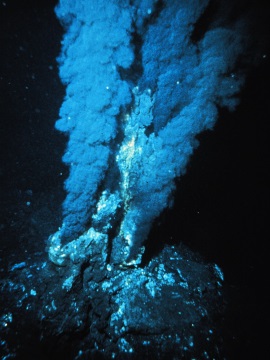 Spontaneous generation is not a specifically evolutionary concept; the Theory of Evolution is biogenetic (life from life) in nature and the specific area of study, abiogenesis (the advent of life from non-life), is studied by those wishing to understand how life may have arisen. Indeed, the concept of spontaneous generation, the notion that inanimate matter could suddenly become alive, goes back as far as Aristotle.
Spontaneous generation is not a specifically evolutionary concept; the Theory of Evolution is biogenetic (life from life) in nature and the specific area of study, abiogenesis (the advent of life from non-life), is studied by those wishing to understand how life may have arisen. Indeed, the concept of spontaneous generation, the notion that inanimate matter could suddenly become alive, goes back as far as Aristotle.
Some Definitions
James C. Rocks [2016-09-15]
 In their battles against the godless heathens of the scientific community, creationists will often make scientific-sounding definitions and use these in attempts to destroy the basis of their enemy’s arguments and as such it is useful to have a fixed set of definitions for the more common scientific & religious concepts.
In their battles against the godless heathens of the scientific community, creationists will often make scientific-sounding definitions and use these in attempts to destroy the basis of their enemy’s arguments and as such it is useful to have a fixed set of definitions for the more common scientific & religious concepts.
Evolution and Immorality
James C. Rocks [2016-08-15]
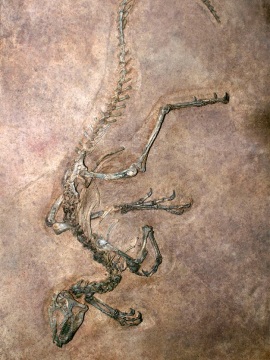 Young Earth creationists, attempting to disprove any theory that disputes their belief that the Earth & universe were divinely created, often use arguments that attempt to demonstrate theories opposing theirs as immoral. Darwin's theory of Evolution (or Neo-Darwinism as it known today) is claimed to be the cause of violence, racism and other forms of immoral behaviour.
Young Earth creationists, attempting to disprove any theory that disputes their belief that the Earth & universe were divinely created, often use arguments that attempt to demonstrate theories opposing theirs as immoral. Darwin's theory of Evolution (or Neo-Darwinism as it known today) is claimed to be the cause of violence, racism and other forms of immoral behaviour.
Science Versus Truth
James C. Rocks [2016-08-01]
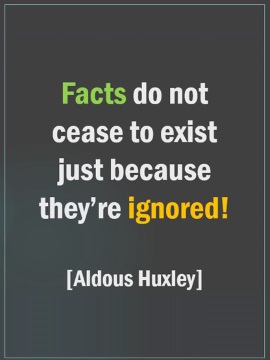 Science is an ongoing attempt to explain the universe and in this respect, is attempting to explain all that is observable. Science is not absolute and the rational minded would not claim so or that it has the absolute answer to anything. So, what is truth? Truth is something which is absolutely correct, without doubt, and the polar opposite of something which is not true.
Science is an ongoing attempt to explain the universe and in this respect, is attempting to explain all that is observable. Science is not absolute and the rational minded would not claim so or that it has the absolute answer to anything. So, what is truth? Truth is something which is absolutely correct, without doubt, and the polar opposite of something which is not true.
Ghosts and Out-Of-Body Experiences
James C. Rocks [2016-07-01]
 Are ghosts real and are people's claims to out-of-body experiences genuine? An entire media culture, books, films and TV are devoted to such things, indeed, the basis of almost all religions is that an important part of us is the ghost-like spirit, soul or daemon. In my not-so-humble opinion, it is ludicrous to believe in such things as there isn't a shred of validatable evidence ...
Are ghosts real and are people's claims to out-of-body experiences genuine? An entire media culture, books, films and TV are devoted to such things, indeed, the basis of almost all religions is that an important part of us is the ghost-like spirit, soul or daemon. In my not-so-humble opinion, it is ludicrous to believe in such things as there isn't a shred of validatable evidence ...
Why I Defend Science!
James C. Rocks [2016-06-01]
 Science represents our best effort to understand the universe around us and, regardless of whether the understanding it engenders is used for good or ill, that knowledge is a good thing. I want the human race to reach as high as we can. I want us to leave this lonely planet in this far-flung corner of what may well be a lonely galaxy and throw ourselves outwards exploring and finding out more about the universe. IMO, the further we throw ourselves the greater we ensure our survival.
Science represents our best effort to understand the universe around us and, regardless of whether the understanding it engenders is used for good or ill, that knowledge is a good thing. I want the human race to reach as high as we can. I want us to leave this lonely planet in this far-flung corner of what may well be a lonely galaxy and throw ourselves outwards exploring and finding out more about the universe. IMO, the further we throw ourselves the greater we ensure our survival.
Evolution vs Science
James C. Rocks [2016-05-15]
 One of the biggest charges laid at the door of science by creationists is that the Theory of Evolution requires as much faith as a belief in a god and, as such, the "theory" of creation should be taught in schools alongside evolution as a science.This article demonstrates that the Theory of Evolution fully adheres to scientific principles and that creation, and particularly, creation "science" cannot be considered as a science at all.
One of the biggest charges laid at the door of science by creationists is that the Theory of Evolution requires as much faith as a belief in a god and, as such, the "theory" of creation should be taught in schools alongside evolution as a science.This article demonstrates that the Theory of Evolution fully adheres to scientific principles and that creation, and particularly, creation "science" cannot be considered as a science at all.
Why I Am An Atheist
James C. Rocks [2016-05-01]
 I am an atheist. I'm proud of being what I am because, to my mind, it implies a certain amount of intelligent consideration of the issues surrounding religions and their claims. However, I don't usually start discussions on atheism or religion because of what I am ... more often than not, something or someone will bring up the subject. That's in public but mostly it's online where I have frequently been as to why it is, I am an atheist.
I am an atheist. I'm proud of being what I am because, to my mind, it implies a certain amount of intelligent consideration of the issues surrounding religions and their claims. However, I don't usually start discussions on atheism or religion because of what I am ... more often than not, something or someone will bring up the subject. That's in public but mostly it's online where I have frequently been as to why it is, I am an atheist.
From the Big Bang to the Current Universe
James C. Rocks [2016-01-15]
 The big bang is decidedly at odds with fundamentalist interpretations of the bible as outlined in Genesis and creationists typically maintain that this theory is, at best, hard to believe as no known cataclysmic events have ever formed order out of their chaos. In lay terminology, the big bang theory describes how the universe started from a huge "explosion" many billions of years ago and that all the material subsequently thrown from it eventually condensed to form galaxies, stars and planets. In this article, I hope to demonstrate what happened following the big bang, provide evidence supporting this theory of the origin of the universe and answer some of the questions/criticisms usually levelled at it by creationists.
The big bang is decidedly at odds with fundamentalist interpretations of the bible as outlined in Genesis and creationists typically maintain that this theory is, at best, hard to believe as no known cataclysmic events have ever formed order out of their chaos. In lay terminology, the big bang theory describes how the universe started from a huge "explosion" many billions of years ago and that all the material subsequently thrown from it eventually condensed to form galaxies, stars and planets. In this article, I hope to demonstrate what happened following the big bang, provide evidence supporting this theory of the origin of the universe and answer some of the questions/criticisms usually levelled at it by creationists.
Evidence for the Evolution of Man
James C. Rocks [2015-12-15]
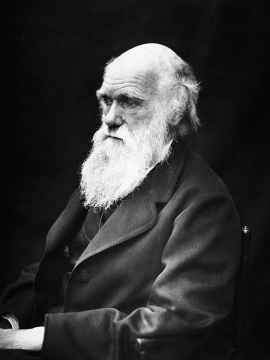 There exists significant evidence for the evolution of man extending back over five million year (and further to man's ancestors) most of which is based on fossil remains, the geological layer in which the remains were found, and fossils of other species found around them.
There exists significant evidence for the evolution of man extending back over five million year (and further to man's ancestors) most of which is based on fossil remains, the geological layer in which the remains were found, and fossils of other species found around them.
The Human Pinnacle
Bethnewt [2015-11-01]
 Many people believe that evolution proceeds by changing organisms slightly, so that species can be lined up to form a gradual series that shows complexity slowly increasing. This view was once held by most biologists but has since been discarded. However, it has been dumpster-dived by creationists seeking materials for straw-man representations of evolutionary theory. Evolution actually takes the form of a branching family tree. Stephen Jay Gould calls ladders and bushes "the wrong and right metaphors respectively for the topology of evolution"
Many people believe that evolution proceeds by changing organisms slightly, so that species can be lined up to form a gradual series that shows complexity slowly increasing. This view was once held by most biologists but has since been discarded. However, it has been dumpster-dived by creationists seeking materials for straw-man representations of evolutionary theory. Evolution actually takes the form of a branching family tree. Stephen Jay Gould calls ladders and bushes "the wrong and right metaphors respectively for the topology of evolution"
Radiometric Dating Methods
James C. Rocks [2015-10-15]
 Despite creationist claims to the contrary, radio-isotopic dating methods are accurate to within acceptable limits. The most common claim (aside from references to experiments where a given dating method was demonstrated as fallible) is that a given method's assumptions may have been violated. Typically, these revolve around the constancy of decay rates and claims that contamination may have occurred.
Despite creationist claims to the contrary, radio-isotopic dating methods are accurate to within acceptable limits. The most common claim (aside from references to experiments where a given dating method was demonstrated as fallible) is that a given method's assumptions may have been violated. Typically, these revolve around the constancy of decay rates and claims that contamination may have occurred.
The Perfect Designs of God
James C. Rocks [2015-09-01]
 Creationists and those favouring intelligent design often point to us, to the complexity, the perfection & the sheer improbability of the world around us in order to justify their view that there must be a designer for the universe, but is this viewpoint fully justifiable?
Creationists and those favouring intelligent design often point to us, to the complexity, the perfection & the sheer improbability of the world around us in order to justify their view that there must be a designer for the universe, but is this viewpoint fully justifiable?
"Why Elephants Have Big Ears" by Chris Lavers
James C. Rocks [2015-08-01]
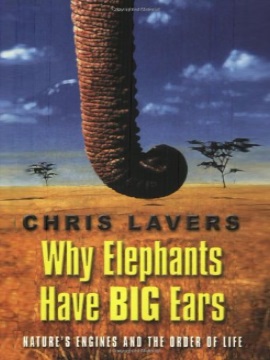 A brilliantly written popular science book that explains how evolution can create the staggering variety it has, whether dinosaurs were warm or cold blooded, why cinematic monsters such as King Kong and Godzilla are laughably impossible, why the marsupials kept control of Australia, why insects are so small. Finally, he explains why, despite our apparent superiority, we really don't own the world at all, that there is no such thing as a superior or dominant lifeform on the planet. He also explains why, of course, elephants do have big ears.
A brilliantly written popular science book that explains how evolution can create the staggering variety it has, whether dinosaurs were warm or cold blooded, why cinematic monsters such as King Kong and Godzilla are laughably impossible, why the marsupials kept control of Australia, why insects are so small. Finally, he explains why, despite our apparent superiority, we really don't own the world at all, that there is no such thing as a superior or dominant lifeform on the planet. He also explains why, of course, elephants do have big ears.
What Is Evidence?
James C. Rocks [2015-07-01]
 Once upon a time, debating in a forum (those things that used to be so popular before the advent of social networking) and following my usual strategy of demanding evidence for various claims, I was asked to define evidence. You could have smacked me down with a wet kipper! I hadn't actually given any real thought to it beyond pretty much knowing what it was. Still, an answer was expected and, as is usually the case when debating evangelists, involved a lot more work than their usual strategy of picking holes in established theory.
Once upon a time, debating in a forum (those things that used to be so popular before the advent of social networking) and following my usual strategy of demanding evidence for various claims, I was asked to define evidence. You could have smacked me down with a wet kipper! I hadn't actually given any real thought to it beyond pretty much knowing what it was. Still, an answer was expected and, as is usually the case when debating evangelists, involved a lot more work than their usual strategy of picking holes in established theory.
Science & Scientific Methodology
James C. Rocks [2015-05-01]
 Science is a methodology and scientific explanations should be based on properly derived data. "Science" which begins with an unshakeable assumption, is not true science. True science is about having no assumptions until they have been accepted through the application of evidence and have demonstrated resilience to genuine falsifiability experiments.
Science is a methodology and scientific explanations should be based on properly derived data. "Science" which begins with an unshakeable assumption, is not true science. True science is about having no assumptions until they have been accepted through the application of evidence and have demonstrated resilience to genuine falsifiability experiments.
"River Out Of Eden" by Richard Dawkins
James C. Rocks [2015-04-01]
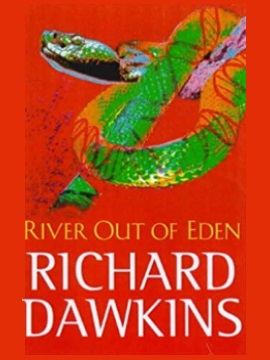 In "River Out Of Eden", Dawkins writes of a universe with no apparent design or purpose and explains more of our evolutionary past. With thorough knowledge and captivating style, Dawkins illuminates how life has achieved what to the uneducated or bigoted appear to be miracles. Science journal 'Nature' says, "It abounds with metaphors that make things brilliantly clear, an excellent introduction to many important evolutionary ideas"
In "River Out Of Eden", Dawkins writes of a universe with no apparent design or purpose and explains more of our evolutionary past. With thorough knowledge and captivating style, Dawkins illuminates how life has achieved what to the uneducated or bigoted appear to be miracles. Science journal 'Nature' says, "It abounds with metaphors that make things brilliantly clear, an excellent introduction to many important evolutionary ideas"
Does God Exist?
James C. Rocks [2015-02-01]
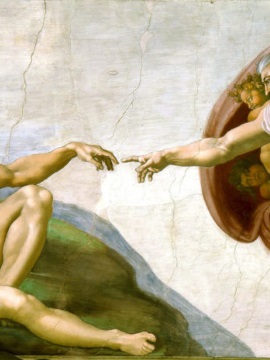 Despite the fact that there is no evidence to support their existence many that make the claim that a god or gods exist ... for the remainder of this article such phenomena will all be referred to as God or god. In the case of Christianity, Judaism (Jehovah) or Islam (Allah) and, indeed, many other religions the god in question is an all powerful, divine force or entity that "created" or "is" or "contains" the universe and/or watches over it and/or permeates every aspect of our lives.
Despite the fact that there is no evidence to support their existence many that make the claim that a god or gods exist ... for the remainder of this article such phenomena will all be referred to as God or god. In the case of Christianity, Judaism (Jehovah) or Islam (Allah) and, indeed, many other religions the god in question is an all powerful, divine force or entity that "created" or "is" or "contains" the universe and/or watches over it and/or permeates every aspect of our lives.